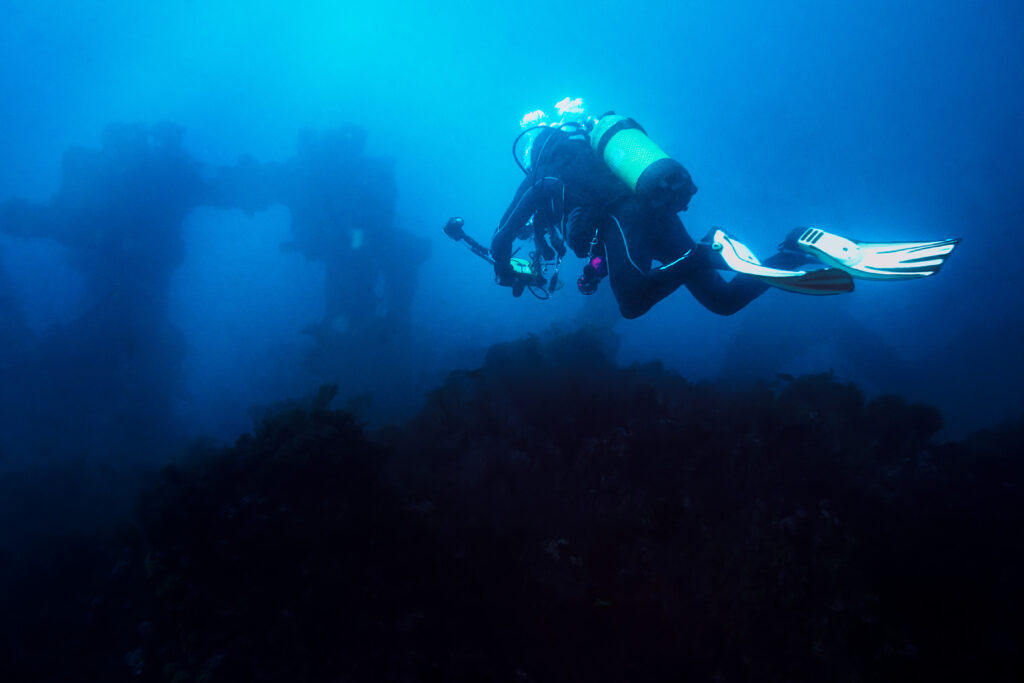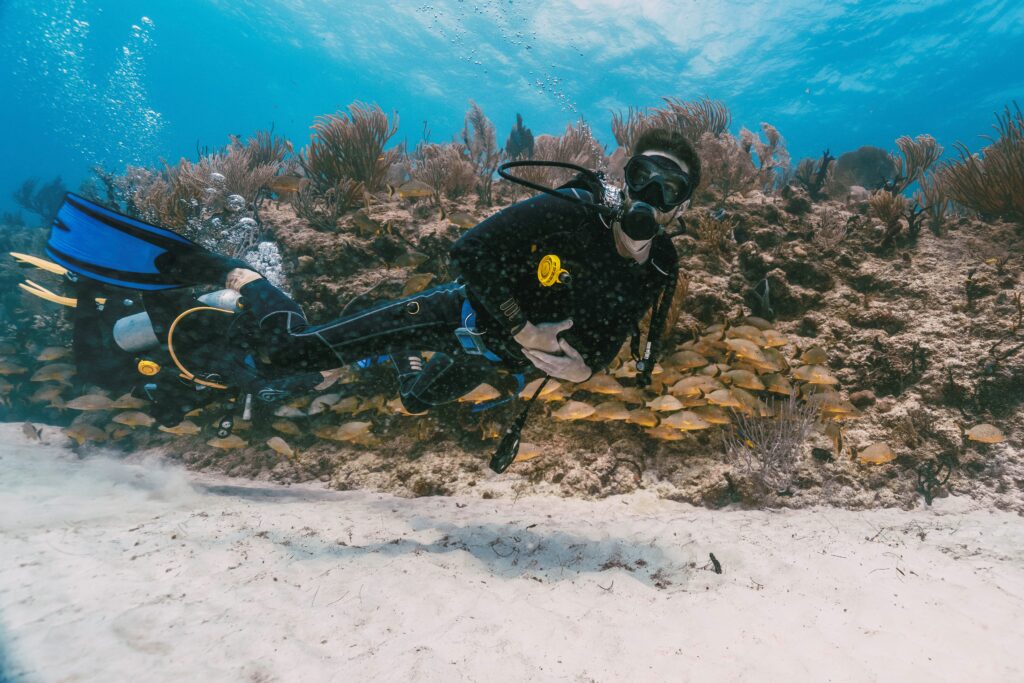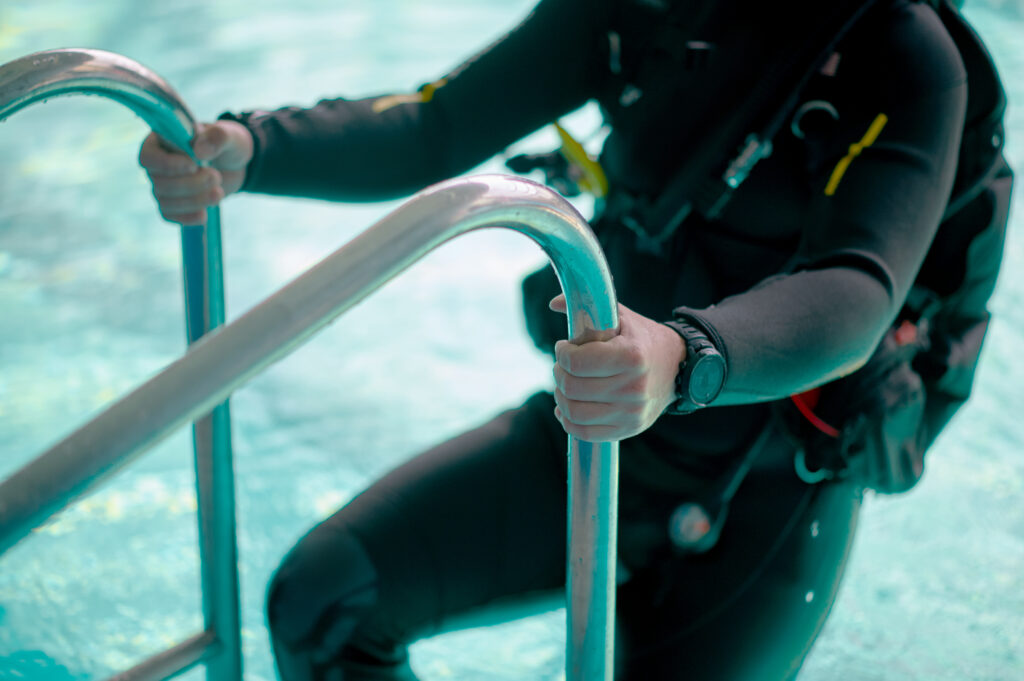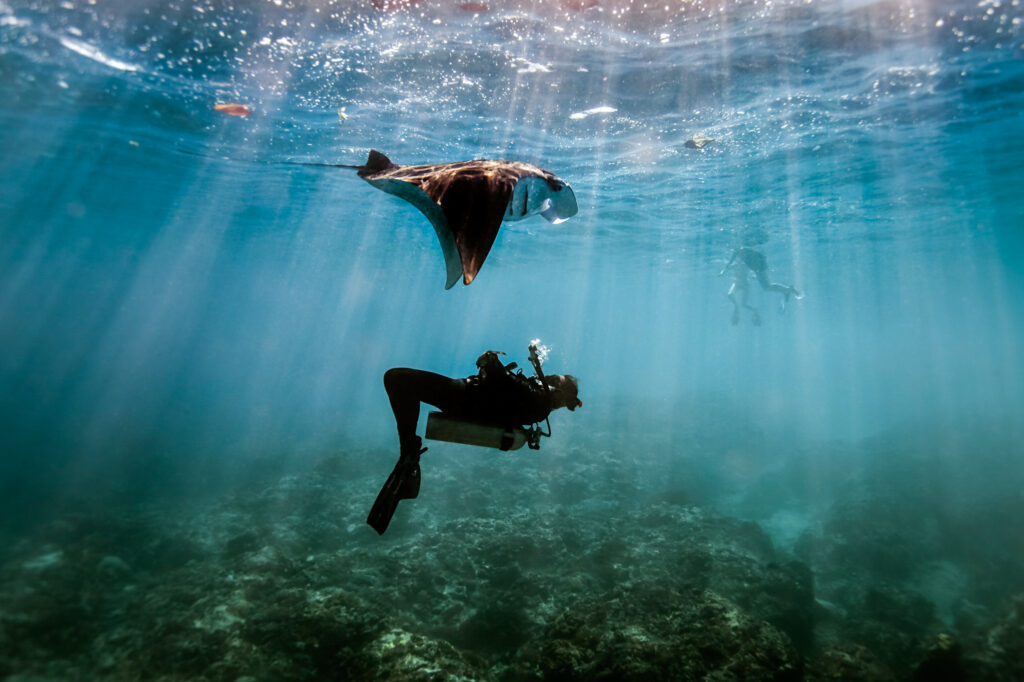What is Deep Diving?

Deep diving is a specialized category of scuba diving that involves descending beyond 18 meters (60 feet) underwater.
What is a Scuba Diver?

What is a Scuba Diver? A scuba diver is a person who engages in the recreational or professional activity of swimming underwater using SCUBA equipment. The term “scuba” is an acronym for “self-contained underwater breathing apparatus,” which allows scuba divers to breathe comfortably beneath the water’s surface while exploring the aquatic world at their leisure. […]
What is Scuba Diving?

Scuba diving is a recreational and professional activity where individuals explore underwater environments using self-contained underwater breathing apparatus (SCUBA) equipment. This equipment allows divers to stay underwater for extended periods, enabling them to experience marine life, shipwrecks, caves, and other submerged wonders. The ability to explore these otherwise inaccessible areas has made scuba diving a popular pursuit for adventure enthusiasts, marine biologists, and professional divers alike. Since its modern development in the 20th century, scuba diving has attracted millions of people globally, offering a unique blend of excitement, discovery, and tranquility beneath the waves.
What is Exposure Protection when Scuba Diving, Freediving, or Snorkeling?

Exposure protection involves the use of specialized clothing or costumes designed to shield the diver from various elements, including cold water temperatures, abrasions, and harmful marine life.
What is an ABC set in scuba diving, freediving, and snorkeling?

The ABC Set is an acronym representing the essential scuba diving, freediving and snorkeling gear that every diver needs: A – scuba mask, B – snorkel, and C – scuba fins. These three foundational pieces of equipment provide the necessary underwater vision, airway, and propulsion mechanisms, respectively, to safely and efficiently explore the underwater world.
What is Off-Gassing?

Off-gassing, within the context of scuba diving, refers to the process by which dissolved gases, primarily nitrogen, are expelled from a diver’s body during ascent. This phenomenon is crucial for diver safety, particularly in avoiding decompression sickness, commonly known as “the bends.” Understanding off-gassing is essential for divers to manage their ascents properly and ensure that the nitrogen absorbed under pressure is released gradually and safely.
What is a Logbook?

A logbook, within the context of scuba diving, is an essential tool for recording the details of each underwater experience. This practice dates back to the early days of diving when keeping a written record of dives was crucial for ensuring safety and improving skills. Today, the logbook serves multiple purposes, from providing a personal history of dives to meeting legal and safety requirements. Maintaining a detailed logbook is a fundamental aspect of diving that enhances the overall experience and contributes to a diver’s growth and development.
What is Cyanosis?

Cyanosis refers to a bluish discoloration of the skin and mucous membranes caused by an insufficient level of oxygen in the blood. This condition can signal underlying health issues, particularly those related to respiratory and circulatory systems. In scuba diving, cyanosis is a critical indicator that a diver might be experiencing hypoxia, a dangerous reduction in oxygen levels. Recognizing and understanding cyanosis is vital for ensuring diver safety, as it can be a precursor to more severe conditions if not promptly addressed.
What is Heliox?

Heliox is a breathing gas mixture composed of helium and oxygen, widely used in deep-sea diving due to its unique properties that improve safety and performance under extreme conditions. Unlike standard air, which consists of approximately 78% nitrogen and 21% oxygen, Heliox replaces the nitrogen with helium. This substitution is crucial in mitigating the adverse effects of nitrogen narcosis and oxygen toxicity that divers can experience at greater depths. Heliox has been a game-changer for technical and commercial divers, enabling them to work and explore at depths that would otherwise be highly hazardous.
What is Open Water Diving?

Open water diving is a fundamental form of recreational scuba diving, characterized by diving in natural bodies of water such as oceans, seas, and lakes. Unlike confined water diving, which takes place in controlled environments like swimming pools, open water diving offers divers the opportunity to experience the vastness and diversity of underwater ecosystems. This type of diving typically involves greater depths and more variable conditions, making it both a thrilling and challenging pursuit for enthusiasts of all levels. The concept of open water diving is integral to the sport, providing the foundation for various specialized diving activities and advanced certifications.
